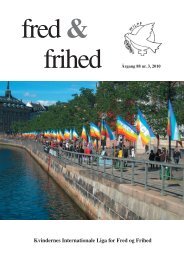Untitled
Untitled
Untitled
You also want an ePaper? Increase the reach of your titles
YUMPU automatically turns print PDFs into web optimized ePapers that Google loves.
152 SUMMARY<br />
the chief of the Shah's bodyguards assigned to seize Mossadeq with the help<br />
of two truckloads of pro-Shah soldiers, was overwhelmed by superior armed<br />
forces still loyal to Mossadeq. The balance of the military plan was thus<br />
frustrated for that day. Upon hearing that the plan had misfired, the Shah<br />
flew to Baghdad. This was an act of prudence and had been at least partially<br />
foreseen in the plan. Zahedi remained in hiding in CIA custody. With his<br />
key officers, he eluded Mossadeq's security forces which were seeking to<br />
apprehend the major opposition elements.<br />
Early in the afternoon of 17 August 1953, Ambassador Henderson<br />
returned to Tehran. General Zahedi, through a CIA-arranged secret press<br />
conference and through CIA covert printing facilities, announced to Iran that<br />
he was legally prime minister and that Mossadeq had staged an illegal coup<br />
against him. CIA agent assets disseminated a large quantity of photographs of<br />
the farmans, appointing Zahedi prime minister and dismissing Mossadeq.<br />
This had tremendous impact on the people of Tehran who had already been<br />
shocked and angered when they realized that the Shah had been forced to leave<br />
Iran because of Mossadeq's actions. U.S. Ambassador Burton Y. Berry, in<br />
Baghdad, contacted the Shah and stated that he had confidence that the Shah<br />
would return soon to Iran despite the apparent adverse situation at that time.<br />
Contact was also established with the Shah in Rome after he had flown there<br />
from Baghdad. Mr. Roosevelt and the station consistently reported that<br />
Mossadeq's apparent victory was misleading; that there were very concrete<br />
signs that the army was still loyal to the Shah; and that a favorable reversal of<br />
the situation was possible. The station further urged both the British Foreign<br />
Office and the Department of State to make a maximum effort to persuade<br />
the Shah to make public statements encouraging the army and populace to<br />
reject Mossadeq and to accept Zahedi as prime minister.<br />
On 19 August 1953, a pro-Shah demonstration, originating in the bazaar<br />
area, took on overwhelming proportions. The demonstration appeared to<br />
start partially spontaneously, revealing the fundamental prestige of the Shah<br />
and the public alarm at he undisguised republican move being started by the<br />
Communists as well as by certain National Frontists. Station political action<br />
assets also contributed to the beginnings of the pro-Shah demonstrations. The<br />
Army very soon joined the pro-Shah movement and by noon of that day it<br />
was clear that Tehran,








